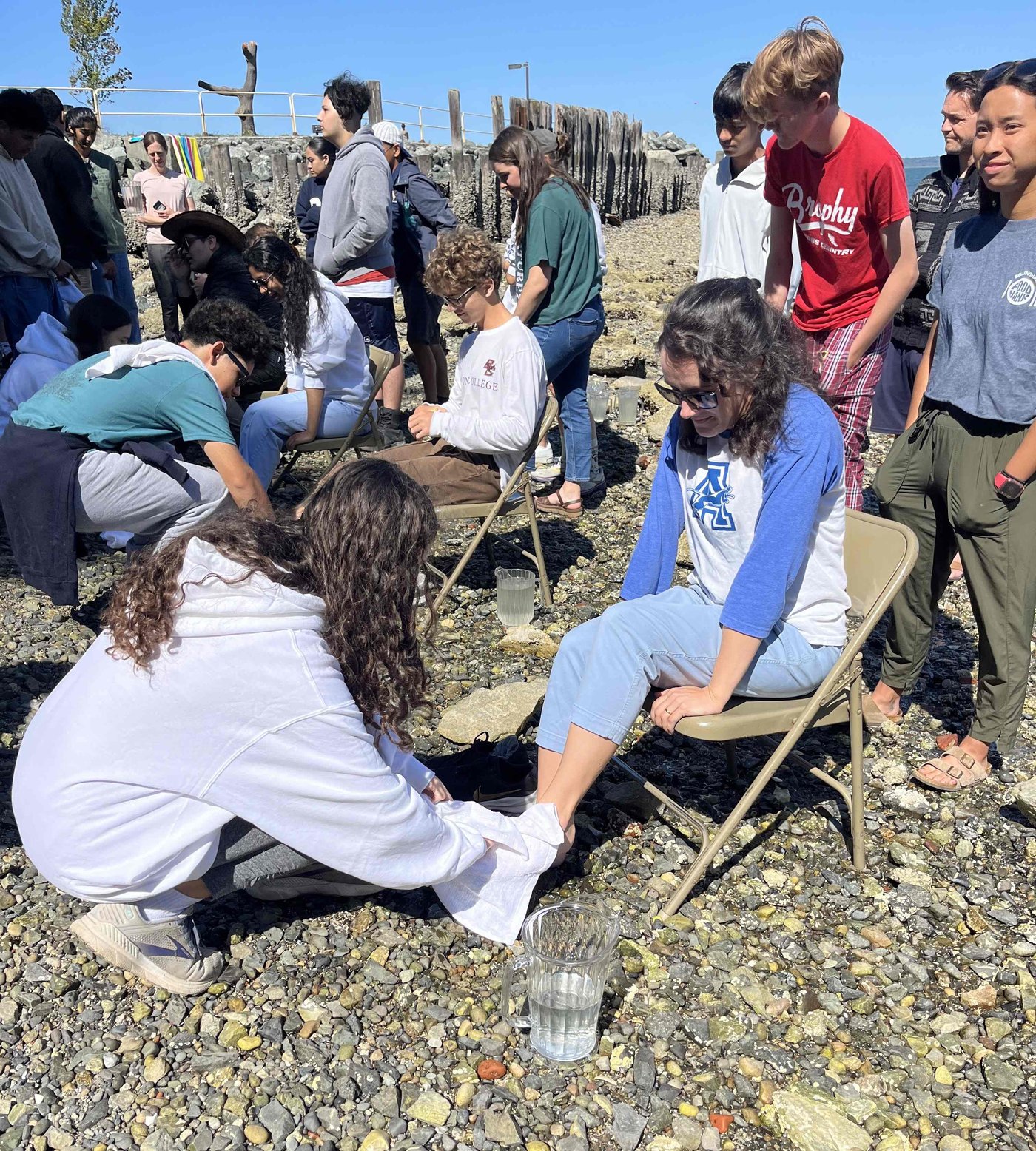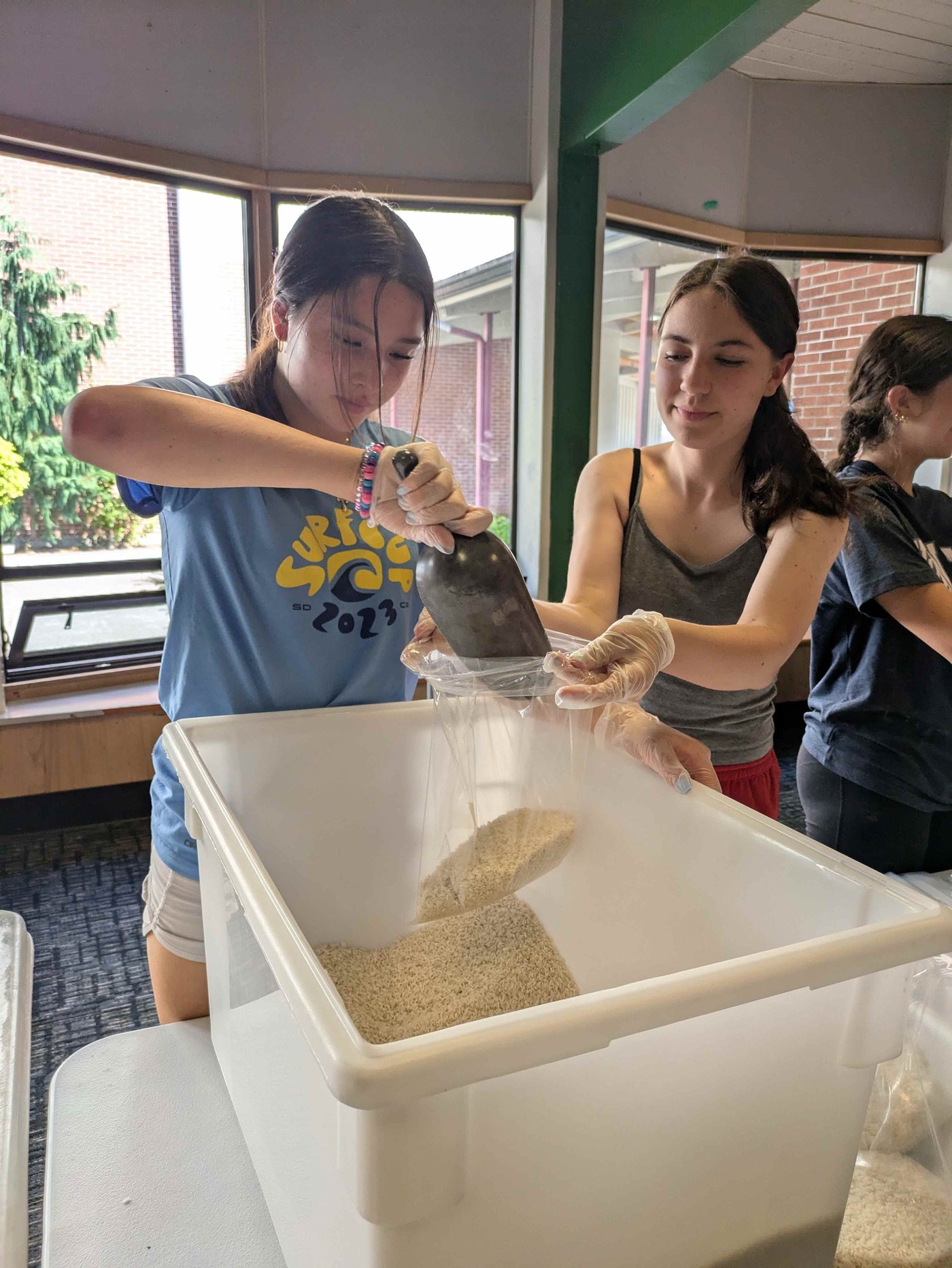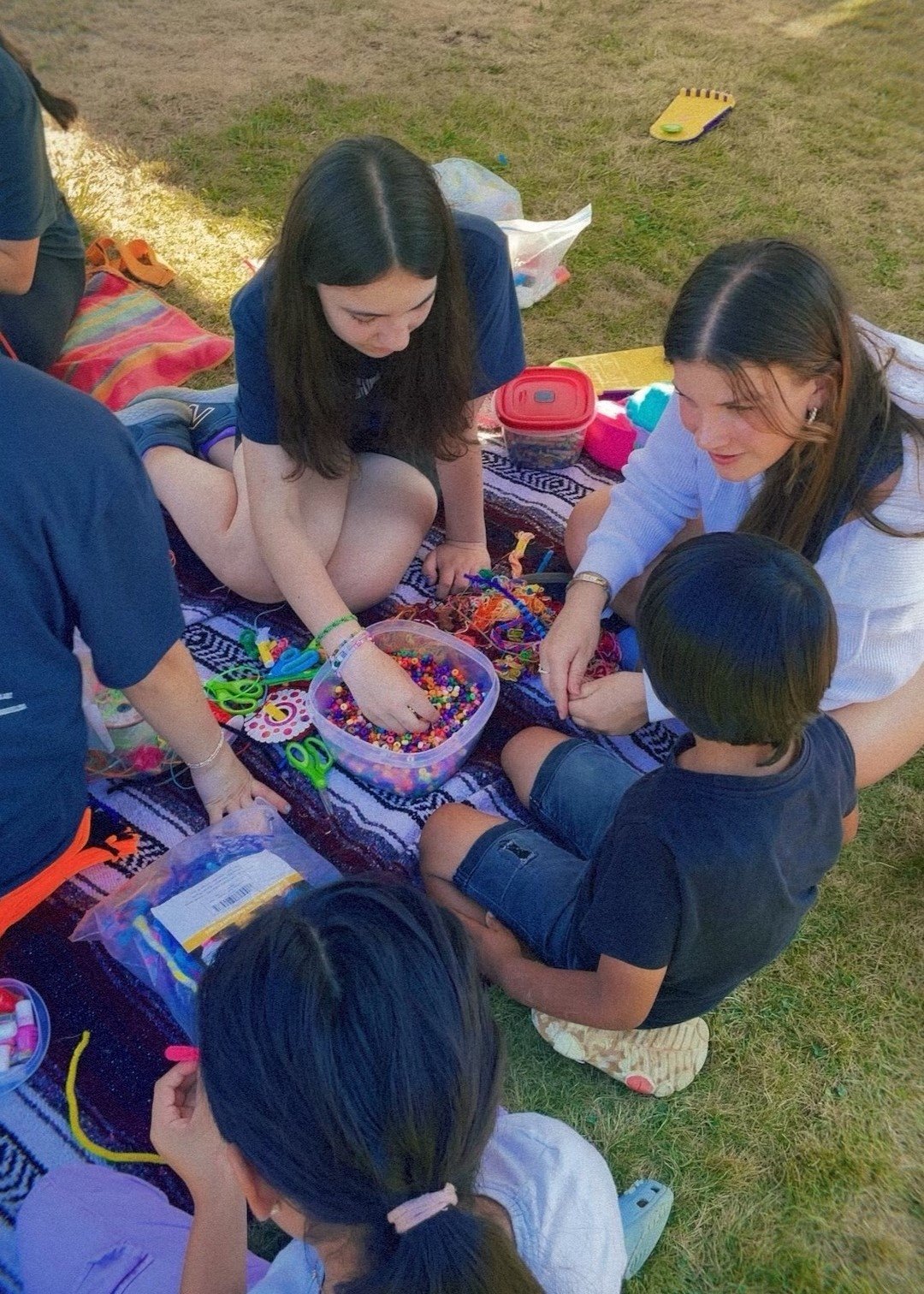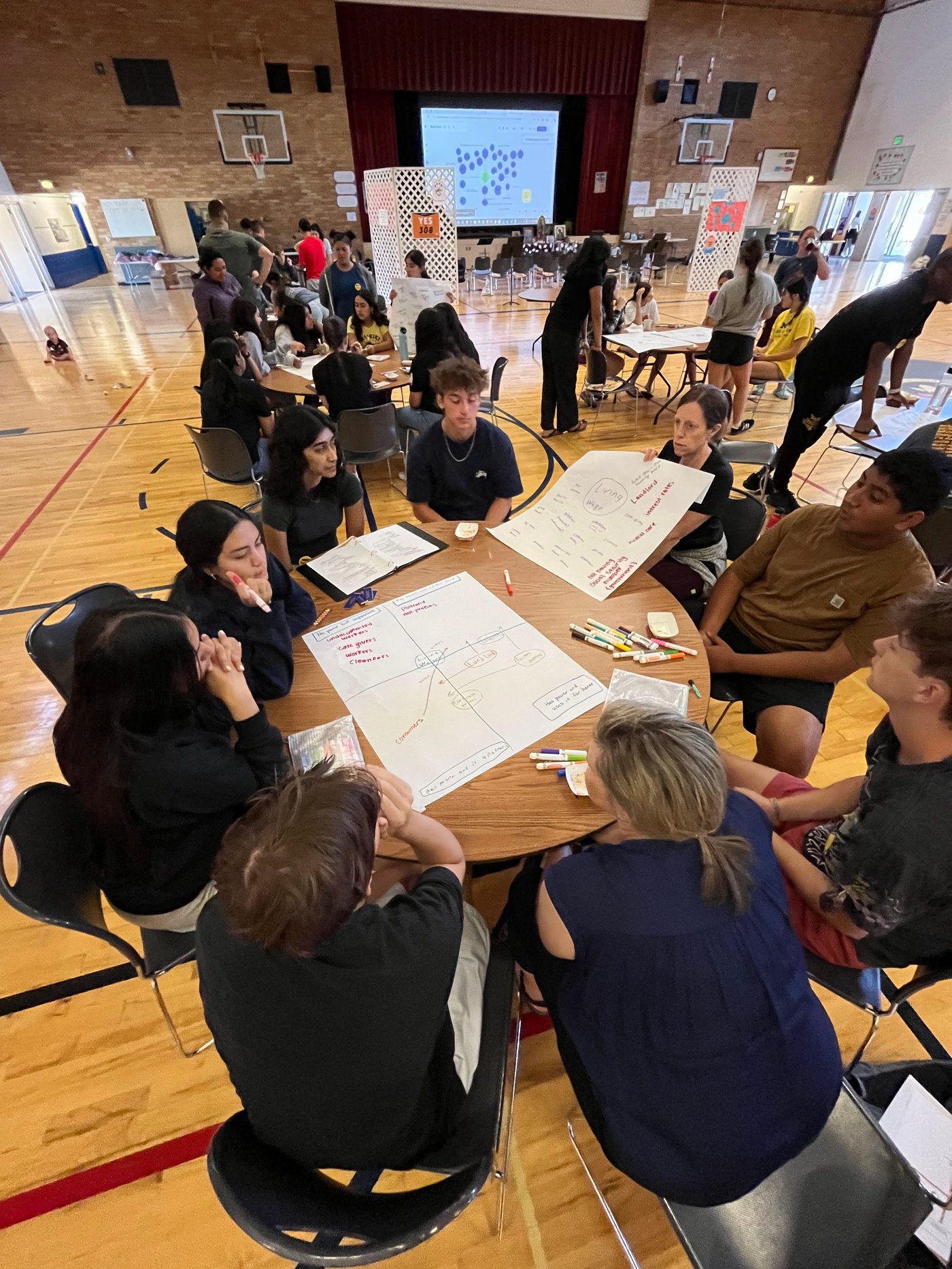BELLINGHAM – After serving migrant farmworkers for six days in July, high school students from five states learned another important lesson by washing each other’s feet.
It was “an act of humility,” Tricia Cavanaugh, a theology teacher and campus minister at Holy Names Academy in Seattle, said a few days after the ceremony. “We’re lowering ourselves to serve one another,” she added, referring to the tradition from Holy Thursday Mass.
The group of 29 students traveled to Whatcom County to participate in Ignite, a leadership, spirituality and social justice project organized by the Seattle-based Intercommunity Peace and Justice Center and the Archdiocese of Seattle’s Agape Service Project.

The students came from schools — and one parish — sponsored by Jesuits West or the Sisters of the Holy Names of Jesus and Mary: Holy Names Academy, Jesuit High School in Portland, Verbum Dei Jesuit High School in Los Angeles, Brophy College Prep in Phoenix, Our Lady of Guadalupe Parish in San Diego and Academy of the Holy Names in Tampa, Florida.
During the July 14-19 experience, students helped Agape Service Project by providing activities for farmworker children and helping operate a food bank, serving 624 families, said Moira Kinney, who will be a junior at Holy Names this fall.
Being in solidarity with the people being served is “so meaningful and impactful,” Kinney said. “It’s immersive and you get to see the community that you’re helping.”
The students also attended seven leadership workshops during the week, said Will Rutt, executive director of the Intercommunity Peace and Justice Center (IPJC). Students worked on a social justice issue — such as homelessness, environmental justice and health care access — and developed 30-, 60- and 90-day plans for moving the issue forward.
“We have the power to do something as big as making a lasting change with what we’re learning about here,” said Sonja Lindstrom, who is entering her senior year at Holy Names.

‘Agape 2.0’
Each summer, the Agape Service Project welcomes about 300 students from schools and parishes around the archdiocese to help serve migrant farmworkers in Whatcom County.
Kelsey Harrington, Agape’s director, said her program has three prongs: providing social services for the farmworker community, giving students an immersive summer experience that combines faith and works, and hiring college-age young adults to give them a “crash course” in lay ministry and nonprofit work.
Ignite, she said, is “Agape 2.0.”

Both Kinney and Lindstrom served with Agape in 2023. Ignite, Lindstrom said, is focused much more on leadership and community organizing.
In its fourth year, Ignite traces its roots to service directors at Jesuit high schools on the West Coast, Rutt said. They wanted to develop a program that extended beyond service by providing training in faith-based, community organizing, he explained.
“We’re really excited to help students live out Catholic social teaching,” Rutt said. “A lot of it focuses on relationship with people they will get to know.”

Because of the pandemic, Ignite’s first two years used an online format; after a year’s pause, IPJC and Agape Service Project started the in-person version of Ignite in 2023, he said. This year’s group is about twice the size of last year’s, Rutt noted.
“It seemed like they made really powerful connections with the farmworker community in the region,” Rutt said.
Cavanaugh said two of her students had never participated in Agape, so this was their first experience interacting with farmworker families. One student mentioned she valued the time they spent visiting the farmworker camps, Cavanaugh said, and both felt they could talk with food bank visitors as friends.
Another student told Cavanaugh she appreciated connecting with students from other schools.
“They left feeling tied into the broader Catholic community,” Cavanaugh said.